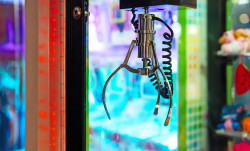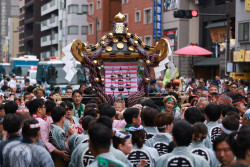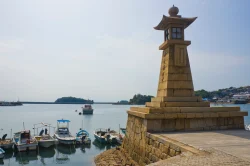
Originally published on metropolis.co.jp on July 2012

THE NUMBERS DON’T LIE
- A newly released poll found that 66 percent of Taiwanese people feel ties with Japan have “deepened” since the March 11 disaster.
- At the same time, 51 percent said they “plan to refrain from traveling to Japan for the time being.”
- An investigation by officials in Saitama uncovered 1,257 cases of welfare fraud in 2011, worth a total of ¥610 million.
- A newly unveiled supercomputer at the Lawrence Livermore National Laboratory in the US has supplanted a Japanese machine as the world’s fastest. The new record holder, named Sequoia, can process 16.324 petaflops of data. (One petaflop is the equivalent of 1 quadrillion operations per second. Please don’t ask us how many zeros that is.)
HOW LOW CAN YOU GO?
- A group of jilted investors claim they were scammed out of ¥1 billion by two women and a man who asked them to help fund the construction of temporary housing for victims of the March 11 disaster.
- The Yomiuri Giants sued the publisher of weekly magazine Shukan Bunshun for defamation over an article that claimed manager Tatsunori Hara paid ¥100 million in hush money to a former yakuza member over a love affair. The club admitted the payout was made, but objected to the implications of an underworld connection.
- Residents living near Tokyo Skytree say they are distressed by the “large number of bicycles left unattended by visitors and the large volume of trash.”
- Local merchants in the Skytree neighborhood are also bummed that, in contrast to the expected increase in business, tourists are bypassing them entirely.
HITTING THE ROAD
- Government safety officials are puzzled by a drastic increase in the number of motorists who have been struck by vehicles “after getting out of their cars [following] an accident or for other reasons.”
- Which may explain why the transport ministry has formed a study group to determine the feasibility of establishing a “system for guiding motor vehicles on expressways without human assistance” by the early 2020s.
- Officials from quake-hit areas in Tohoku set up a booth on the sidelines of last month’s Rio+20 environmental conference to show off rebuilding projects and to offer locally produced food and booze to conventioneers.
- Japanese astronaut Akihiko Hoshide followed the Russian tradition of laying flowers at the Moscow grave of Yuri Gagarin—the first man in space—before his mission to the International Space Station last week.
THE TROUBLE WITH CHINA
- Police officials in Tokyo say Chinese diplomats asked them to cover up the arrest of a Beijing man who allegedly destroyed a commemorative plaque attached to a cherry tree at Yasukuni Shrine. The suspected vandal, who works at a botanical garden in China, told the cops he “could not stand the cherry tree being treated badly by the plaque,” which was donated by a military group before World War II.
- A Chinese man was arrested for his role in a scam that involved using tiny wireless earphones to help compatriots pass the notoriously difficult Japanese drivers license test. Suspicions were raised after one examinee scored 97 percent on the test despite having minimal Japanese skills.
- Police in Fukuoka busted five Chinese men for using a computer virus to steal the passwords of online bank accounts, then withdrawing money from the accounts via ATMs. The scheme netted “tens of millions of yen.”
- Two Japanese men in Kanagawa were arrested for filching designs for automobile engine parts from a local firm and passing them along to a Chinese rival.
HISTORY COMES ALIVE
- As part of its 110th anniversary celebrations, Dai-ichi Life Insurance is letting 200 people a day view the office of Supreme Allied Commander Gen. Douglas MacArthur, which has been preserved at the company’s HQ in Chiyoda-ku. The offer ends July 22.
- One notable attendee in next month’s ceremonies to mark the atomic bombings of Hiroshima and Nagasaki will be Clifton Truman Daniel, the grandson of wartime president Harry Truman, who made the decision to drop the bombs.
- “Disturbing noise” and “negative situations” were just two of the colorful phrases deployed by Chinese Ambassador Cheng Yonghua to describe the TMG’s plan to purchase the disputed Senkaku Islands.
FAMOUS FIRSTS
- Officials in Akita Prefecture say the Russian government has accepted their offer to present President Vladimir Putin with… a puppy.
- The Meteorological Agency says the typhoon that struck Japan last month was only the 11th such storm to hit the mainland in the month of June since recordkeeping began in 1951.
- The Okinawa Historical Film Society has released a 57-minute DVD of archival footage from World War II that shows intense fighting between US and Japanese troops. The movie also includes scenes of “how local residents lived in US camps.”
- Members of the Sumiyoshi-kai crime syndicate will no longer be able to enjoy free parking in Tokyo after authorities “issued a strong recommendation to ban the gang from further benefiting from the scheme.”
THE GOLDEN PARACHUTE IS OPEN
- A newspaper investigation found that 8 of the 20 TEPCO executives and auditors who resigned last month to take responsibility for the Fukushima nuclear crisis have landed “lucrative positions at group companies and other entities.”
- An advisory panel to the labor ministry has, sensibly, recommended that companies treat part-time workers “like permanent employees if they do the same jobs and are managed the same way.”
- Bottom Story of the Week: “Food, Rest Prescribed for Kanagawa Seal” (via The Yomiuri Shimbun)
Compiled from reports by AP, Japan Today, The Japan Times, The Asahi Shimbun, The Tokyo Reporter, Japan Probe, The Mainichi Daily News, Daily Yomiuri, AFP, Reuters and Kyodo







